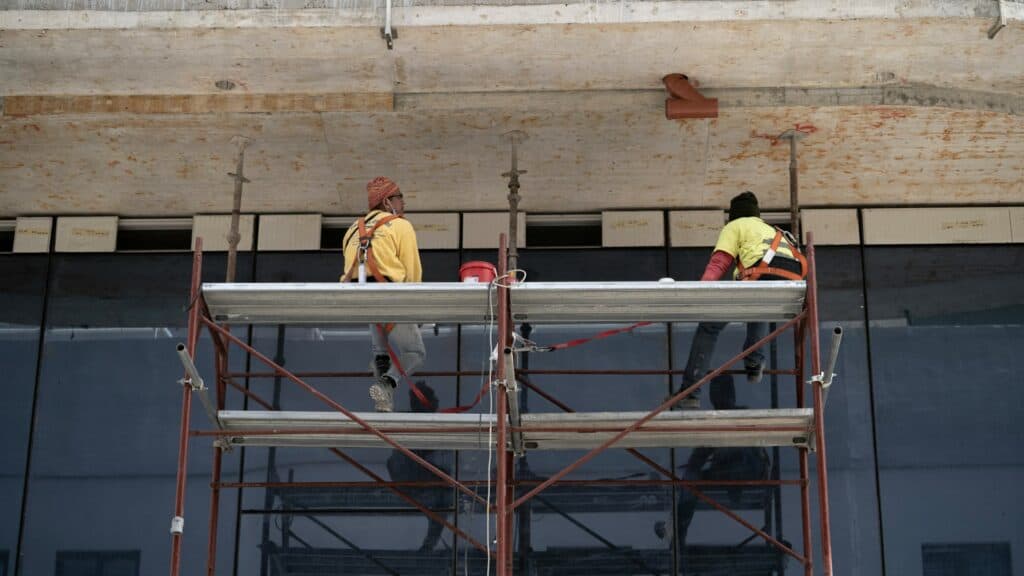Construction is a vital part of New York State’s growth. Before the covid pandemic and the ensuing restrictions, the state’s construction industry had an annual growth rate of 3.2% and added 99,000+ jobs over the course of a decade. The sector is vital to the state’s economy, catering to both infrastructure improvement, and residential developments to cater to the growing population.
New York's Labor Law Section 240, commonly known as the "Scaffold Law," is a crucial piece of legislation designed to protect construction workers from gravity-related accidents. This unique New York law, which has been in effect for over 140 years throughout the State, places strict liability on property owners and contractors to ensure the safety of workers performing tasks at elevated heights.
If you’ve been injured in a scaffolding or height-related accident in a construction site, you may be able to pursue a personal injury claim to receive fair compensation for injuries, medical expenses, and lost wages.
Injured in a Construction Accident in New York?
Let us help. Our team provides free legal consultations.
What is Labor Law 240?
New York State sought to instill specific protections for construction workers, who are the backbone of the industry. From numerous building codes and safety regulations, as well as mandatory workers’ compensation for work-related injuries, the State also developed and implemented Labor Law 240, commonly known as the Scaffold Law.
The Scaffold Law requires contractors, property owners, and their agents to provide proper protection for workers engaged in the "erection, demolition, repairing, altering, painting, cleaning or pointing of a building or structure." This protection extends to the use of scaffolding, hoists, ladders, and other elevation-related equipment.
Key provisions of the law include:
1. Strict Liability: Unlike typical negligence cases, the Scaffold Law imposes absolute liability on owners and contractors who fail to provide adequate safety measures. This means that if a worker is injured due to a violation of the law, the responsible parties can be held liable regardless of the worker's own negligence.
2. Safety Requirements: Scaffolding more than 20 feet above the ground must have safety rails at least 34 inches high, extending along the entire length and ends of the scaffolding. The law also requires that scaffolding be capable of bearing four times the maximum weight it's expected to support.
3. Comprehensive Protection: The law covers not only falls from heights but also injuries caused by falling objects that were improperly secured or hoisted.
Why the Scaffold Law Matters
Construction work at heights is inherently dangerous. According to the Bureau of Labor Statistics (BLS), 38.4% of deaths that occurred in the construction industry in 2022 were due to falls, slips, and trips. Furthermore, OSHA's "Fatal Four" hazards in construction consistently place ‘Falls’ at the top.
As such, the Scaffold Law serves as a powerful incentive for property owners and contractors to prioritize worker safety, potentially saving lives and preventing devastating injuries. Injured workers who were not provided protection when operating on a scaffold or elevated platforms may pursue compensation through workers’ compensation or a personal injury claim.
Can I Sue Under the Scaffold Law if I’ve Already Received Workers’ Compensation?
Yes. A claim under the Scaffold Law is a distinct third-party claim that can be filed on top of receiving workers’ compensation benefits. Workers’ compensation does not cover all aspects of an injury. Moreover, it does not provide you the avenue to recover damages for pain and suffering, diminished quality of life, or even full wage compensation, depending on the severity of your injuries.
The difference between the two is in identifying who is liable for your injuries. While worker’s compensation prevents you from suing your employer, third-party entities such as the property owner or the product manufacturer are not exempted. If their negligence contributed to your accident, you may take legal action against them.
The experienced personal injury attorneys at the Porter Law Group can help you navigate the legal complexities involving this law, and help you secure the best compensation possible. We have extensive experience in complex personal injury cases throughout the state.
Are You Seeking Compensation for a Construction Accident?
Let us help. Our clients don't have to pay anything unless we win.
How Porter Law Group Can Help
If you've been injured in a scaffold-related accident in New York, the experienced personal injury attorneys at Porter Law Group are here to help. Our firm specializes in construction accident cases, including those involving violations of the Scaffold Law. We understand the complexities of this legislation and how to effectively advocate for injured workers.
Our services include:
- Thorough Case Evaluation: We'll carefully review the circumstances of your accident to determine if there were violations of the Scaffold Law or other safety regulations.
- Comprehensive Investigation: Our team will gather evidence, interview witnesses, and consult with experts to build a strong case on your behalf.
- Skilled Negotiation: We'll work tirelessly to secure fair compensation for your medical expenses, lost wages, pain and suffering, and other damages.
- Litigation Experience: If a fair settlement can't be reached, we're prepared to take your case to trial and fight for your rights in court.
- No Upfront Costs: We work on a contingency fee basis, meaning you don't pay unless we win your case.
Contact a New York Scaffolding Fall Accident Attorney
The Scaffold Law provides critical protections for New York's construction workers, but navigating the legal process after an accident can be challenging. At Porter Law Group, we're committed to helping injured workers understand their rights and pursue the compensation they deserve.
Call us at 833-PORTER9 or email info@porterlawteam.com to schedule your free, no-obligation consultation. Remember, we work on a contingency fee basis – you pay nothing unless we win your case.








